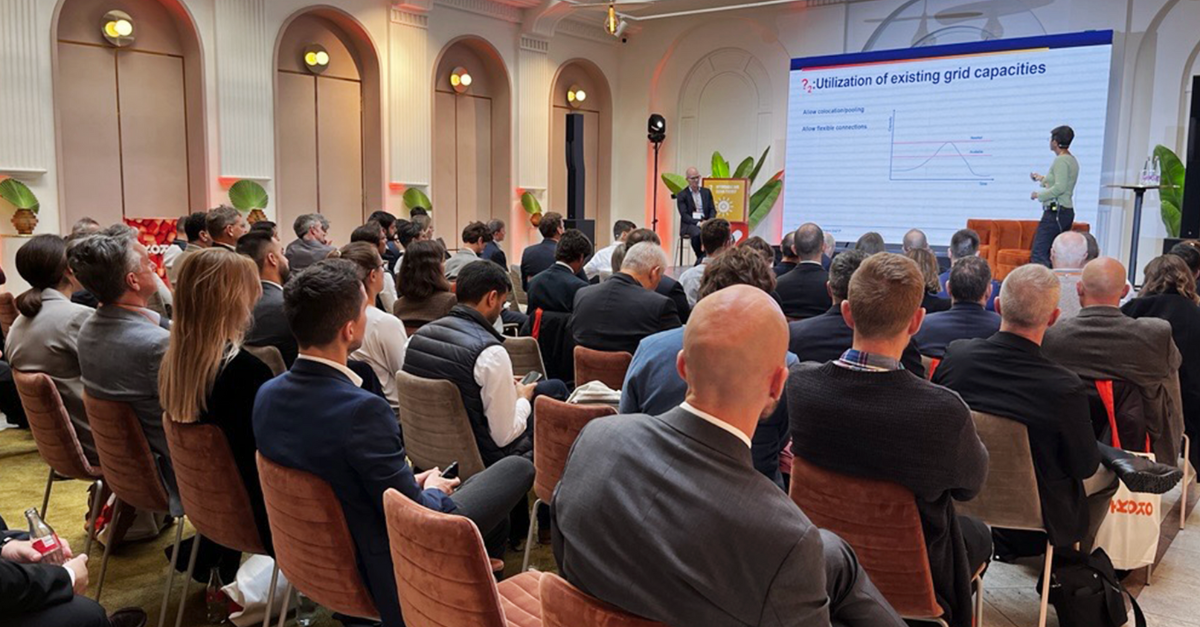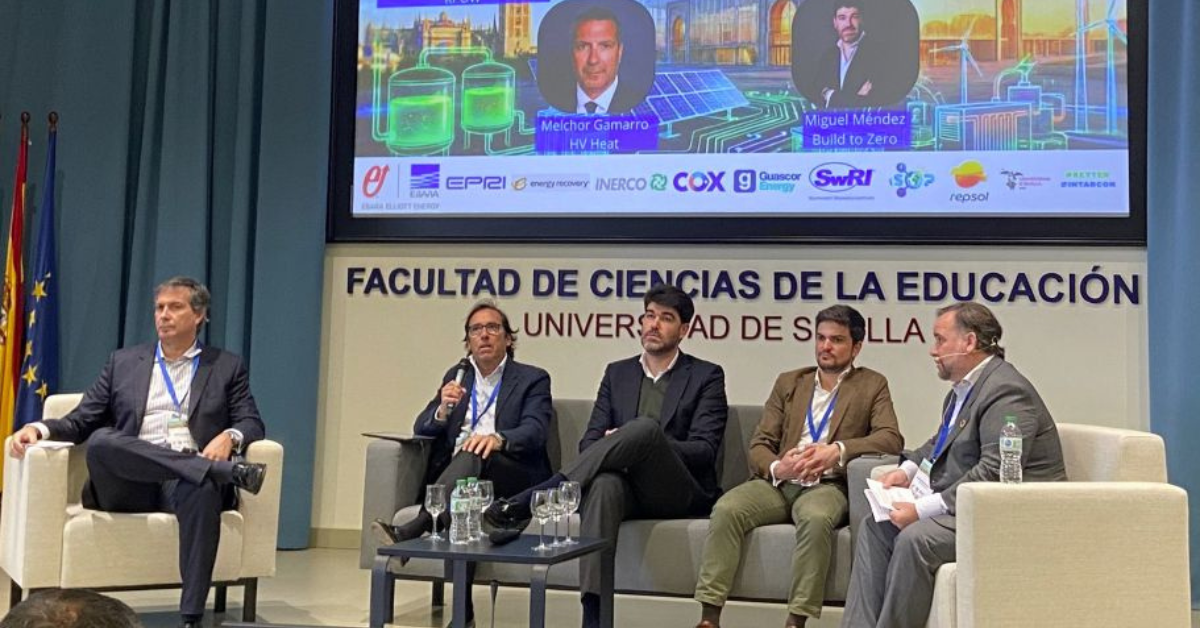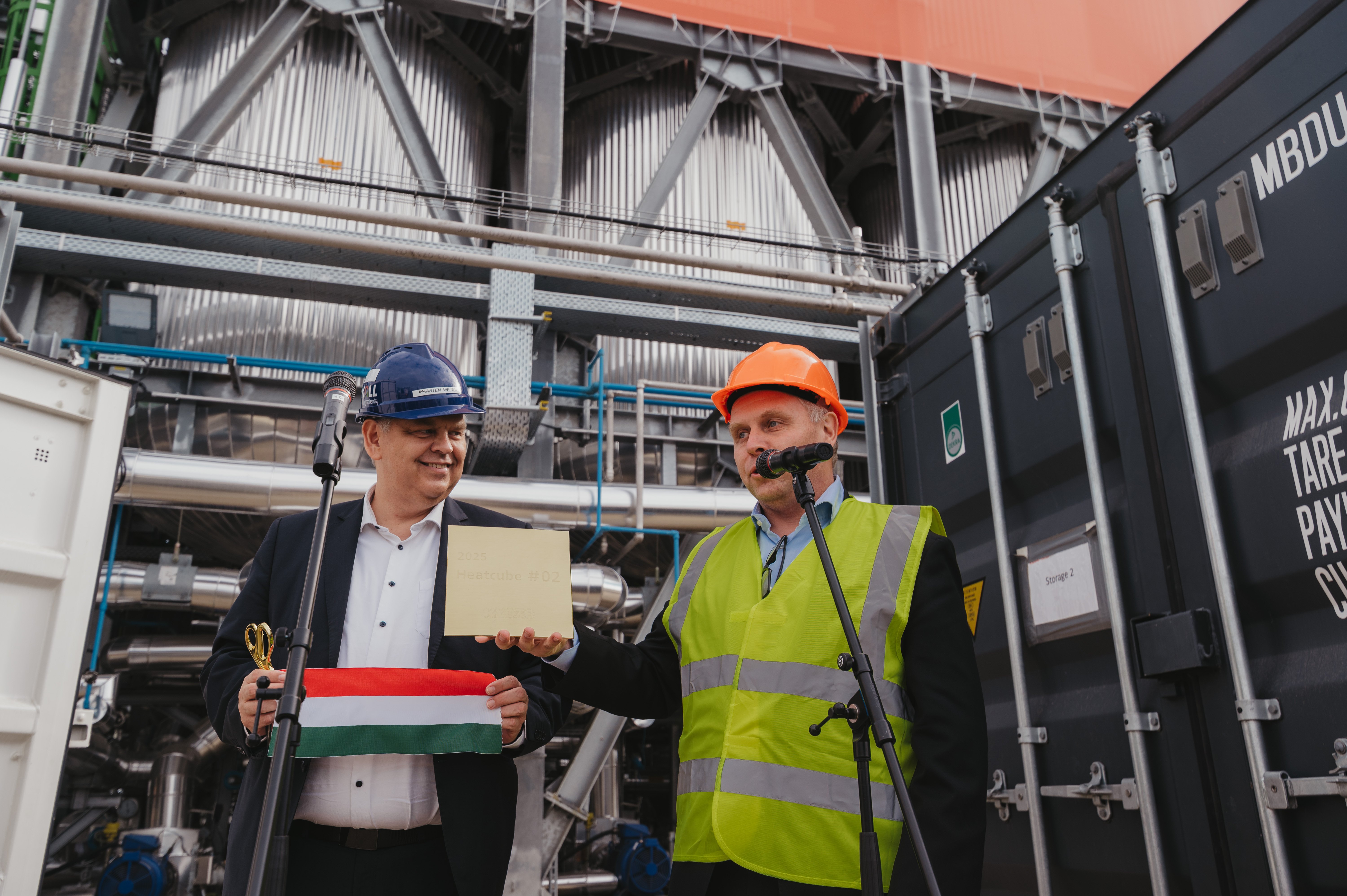Heat in action this October
In this edition, we spotlight how industrial heat and thermal storage are turning clean energy ambitions into real-world results.
Read about Kyoto Group making strides in industrial decarbonization; from joining a major energy storage initiative to launching the second European Heatcube at KALL Ingredients.
We also highlight takeaways from Thermal Energy Day 2025, where Kyoto Group gathered industry leaders and experts to explore thermal energy and sustainable, flexible industrial heat.
Dive into the innovative projects, industry trends, and collaborations shaping the future of industrial energy.

Unlocking thermal value: Key insights from TED 2025
On October 8th, 2025, Kyoto Group hosted Thermal Energy Day in Budapest, gathering industry leaders, investors, and experts to explore the thermal energy landscape.
Moderated by Jan Rosenow, the event featured insights from McKinsey & Company, Aurora Energy Research, Future Cleantech Architects, MAVIR, RAP, enspired, Energiabörze, BASF and Kyoto Group.
Below we share some of the insights shared by these industry experts ⬇️

Infrastructure, volatility, and the value of electrified heat
McKinsey's analysis highlights the scale of investment needed for the global energy transition and the fundamental role that flexible assets must play in managing system stability.
The world is entering an "infrastructure moment," requiring an estimated $106 trillion in investment through 2040, with the energy sector claiming the second-largest share at roughly $23 trillion. This investment is necessitated by a global power system increasingly dominated by intermittent renewables.
As solar and wind capacity grows, systems will see increasing occurrences of oversupply, leading to greater power price volatility. This dynamic creates a clear market signal for flexibility, and McKinsey identifies electrified heat as one of the most financially attractive solutions for harnessing this volatility. TES solutions, such as Heatcube, are poised to capture this value by storing cheap power for later use, effectively turning a grid challenge into a profit center for industrial heat consumers.
Decarbonization and the economic imperative of TES
The Future Cleantech Architects (FCA) session emphasized that heat is a crucial, yet neglected, part of the decarbonization challenge.
While electricity typically costs 2–3 times more than natural gas, the economic value of Thermal Energy Storage (TES) fundamentally changes this equation. TES is crucial because it allows industrial users to arbitrage power prices, effectively turning volatile electricity prices into affordable heat .
This opportunity is validated in practice:
- Optimization expert enspired showed that simply buying electricity on the Day-Ahead market could result in a charging cost of -14 EUR/MWh for a thermal storage unit. However, by using "x-market optimization", which means actively trading power across all available markets (Day-Ahead, Intraday, and ancillary services), that same asset could achieve a net profit of +27 EUR/MWh.
Missed TED 2025? Sign up to view the full recording
Heatcube launch at KALL Ingredients
On October 9th, 2025, the day after Thermal Energy Day, Kyoto Group inaugurated its second European Heatcube at the KALL Ingredients facility in Hungary.
CEO Morten Bülow, together with partners from KALL Ingredients, Kyotherm, and Energiabörze, shared insights on the project and the current energy landscape. A guided tour of Heatcube offered a first-hand look at the technology. Maarten Welten Managing director of KALL Ingredients stated,
"I believe in sustainable production. If you work in the food industry, across the full chain from farm to fork, you must be able at any moment in the next 10, 15, or 20 years to be a proud producer for your consumers.
That is why this Heatcube story carries an extra dimension for me. It opens new sales opportunities, for example with a global beverage company that is willing to pay a premium for zero-carbon sugar. With this technology, we can now claim that a large part of our sugar production is carbon neutral."
This inauguration showcases industrial decarbonization in action, a tangible step toward an electrified, sustainable future for European industry.

Industry spotlight | IF25 Heat Auction
The European Commission has published the final Terms and Conditions for its first pilot auction for industrial heat decarbonization, the IF25 Heat Auction, with a budget of €1 billion under the Innovation Fund.
This first Europe-wide auction targets industrial process heat, one of the largest sources of CO₂ emissions. And with this auction, the Commission aims to accelerate the electrification and renewable heat transition in sectors such as chemicals, steel, and cement. Eligible technologies include:
- Electrified heat (thermal energy storage, heat pumps, boilers, resistance or induction heating)
- Direct renewable heat (solar thermal and geothermal)
- Hybrid systems combining both
Successful projects will receive a fixed premium subsidy per tonne of CO₂ abated for up to five years, bridging the cost gap between clean heat and fossil fuels.
Funded by the EU Emissions Trading System, the auction is a key step in the Clean Industrial Deal and lays the groundwork for the Industrial Decarbonisation Bank. The auction is expected to open for bids in early December 2025.
Thermal news: Kyoto Group x enspired
Kyoto Group and enspired have signed a Memorandum of Understanding (MoU) to strengthen their collaboration and further unlock the potential of thermal energy storage in power markets.
By combining Kyoto’s expertise in thermal energy storage with enspired’s trading intelligence, the partnership aims to bridge the gap between renewable energy generation and real-time market flexibility.
Together, the companies have developed an AI-driven optimization strategy for Kyoto’s Heatcube, allowing it to actively participate in intraday trading. This not only enhances the operational value of thermal storage but also contributes to a more flexible and decarbonized energy system.
This collaboration is a strong example of how smart trading meets smart technology, and accelerating the energy transition.
Upcoming events

E-world 2025
On October 28th, Kyoto's CFO Simen Bomnes Valåmo participated in the E-world 2025 digital program, with the webinar: Europe's Power Surplus: A Wasted Opportunity?
This webinar highlighted:
- Surplus is soaring: Renewables ~49% of EU power (2024); curtailment rising; duck curves deeper and wider.
- Go where the energy is: Heat is ~49% of final use; mid-temp industrial heat is prime for electrification.
- TES unlocks flexibility: Charge 6–12 hrs on cheap power, deliver heat 24/7; modular, can charge and discharge simultaneously.
- Proven and low risk: Heatcube references in Denmark and Hungary; Heat as a Service lowers cost and capex; best markets include Germany, Netherlands and Spain.





